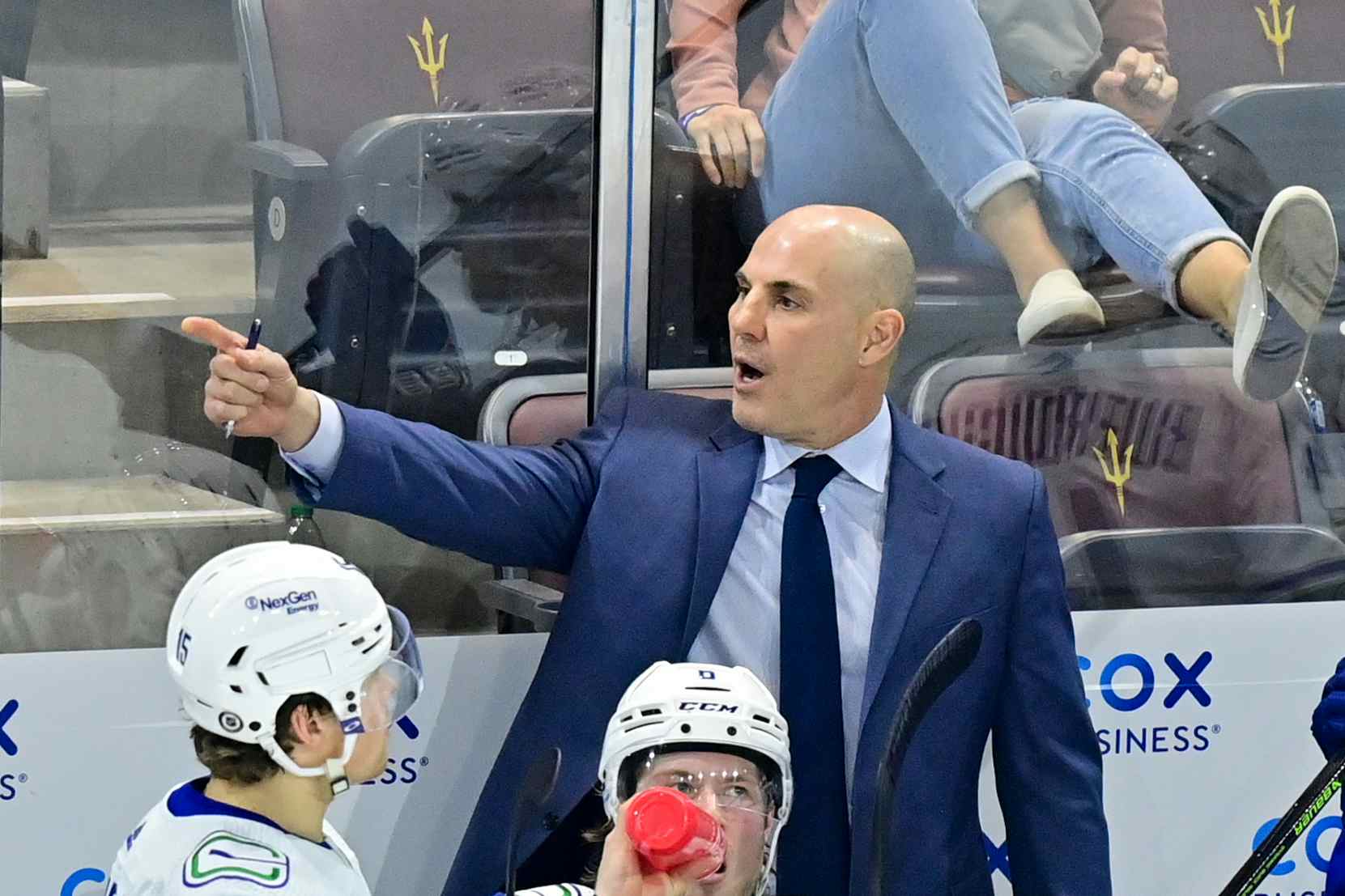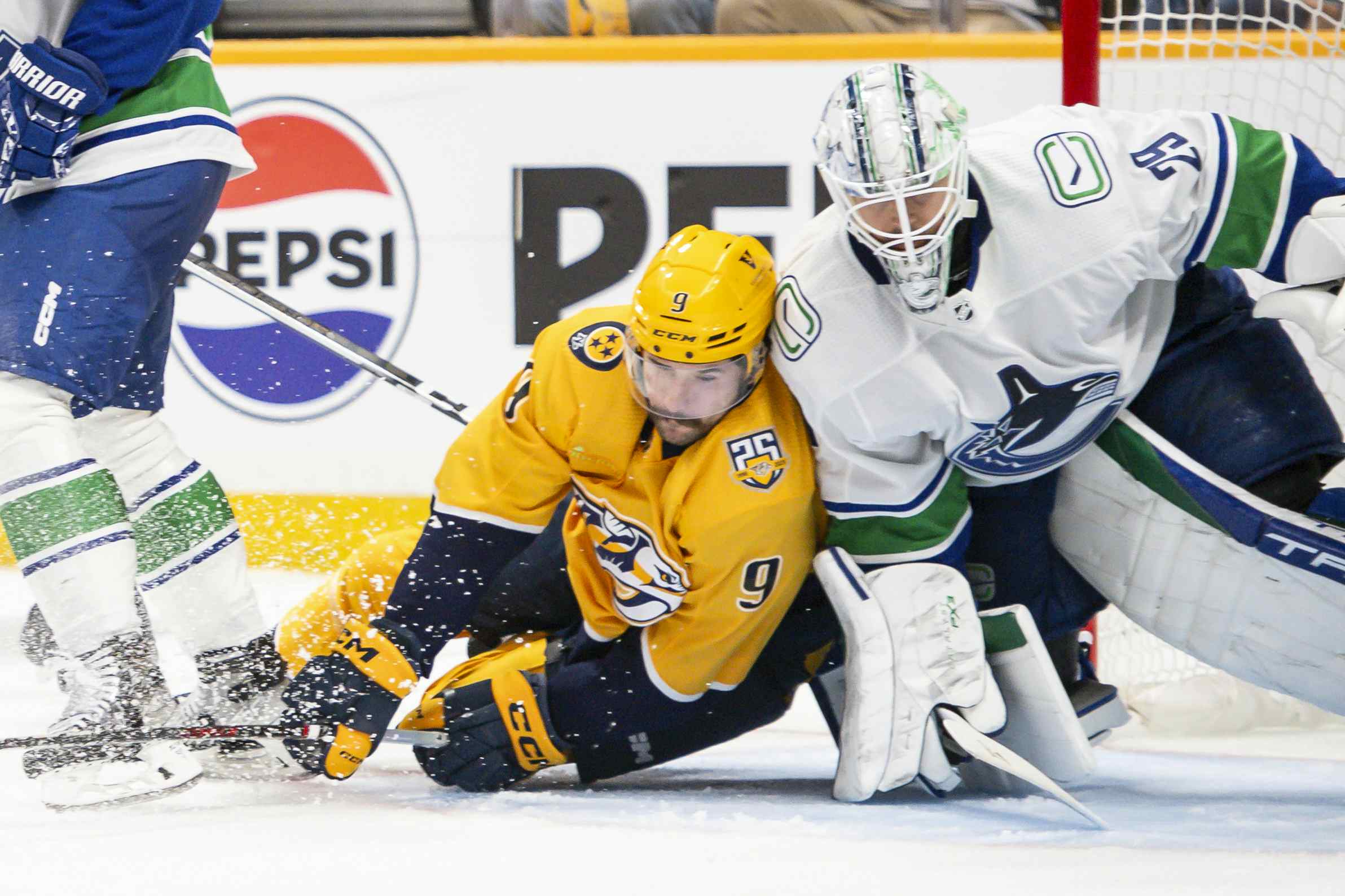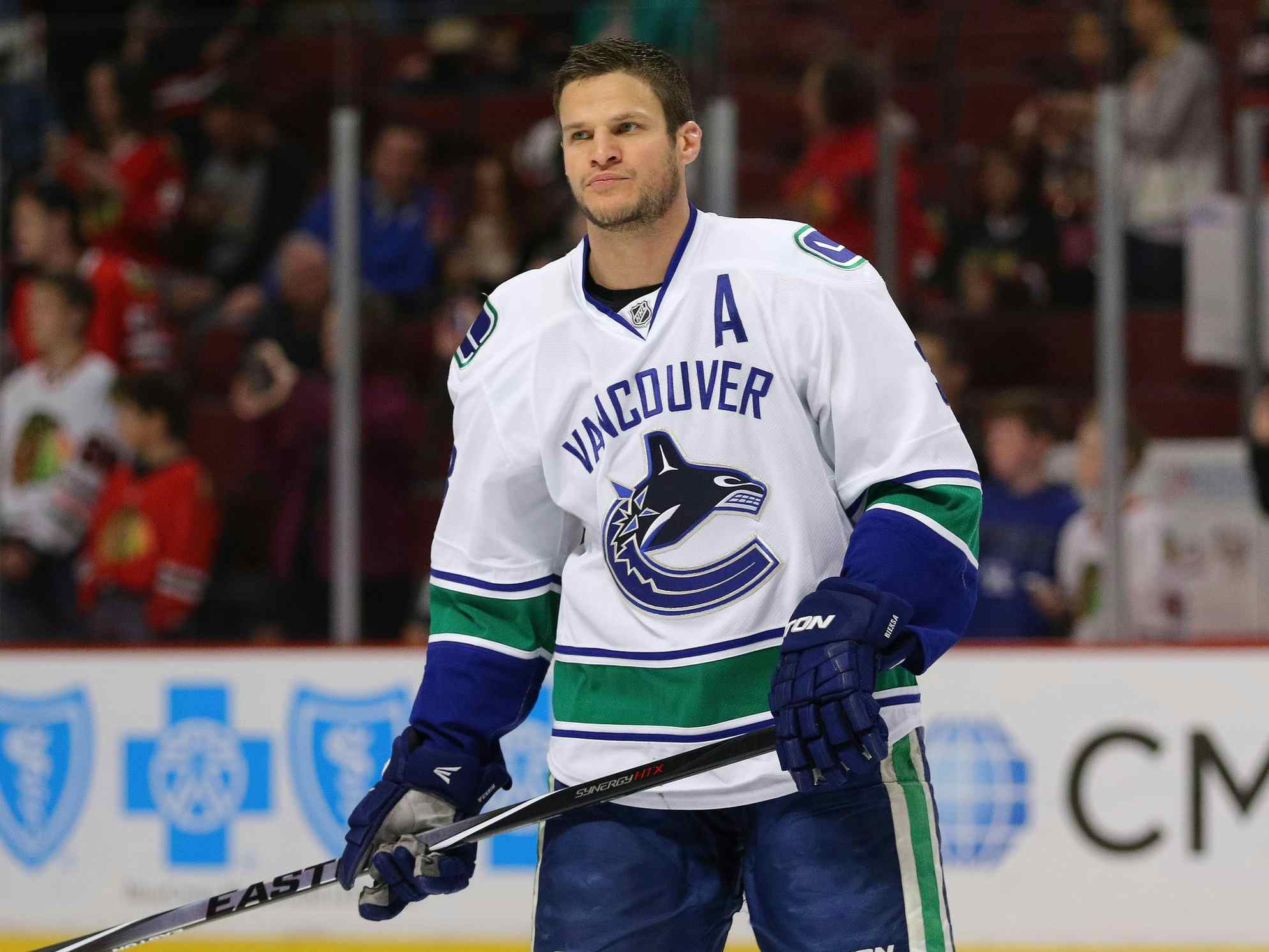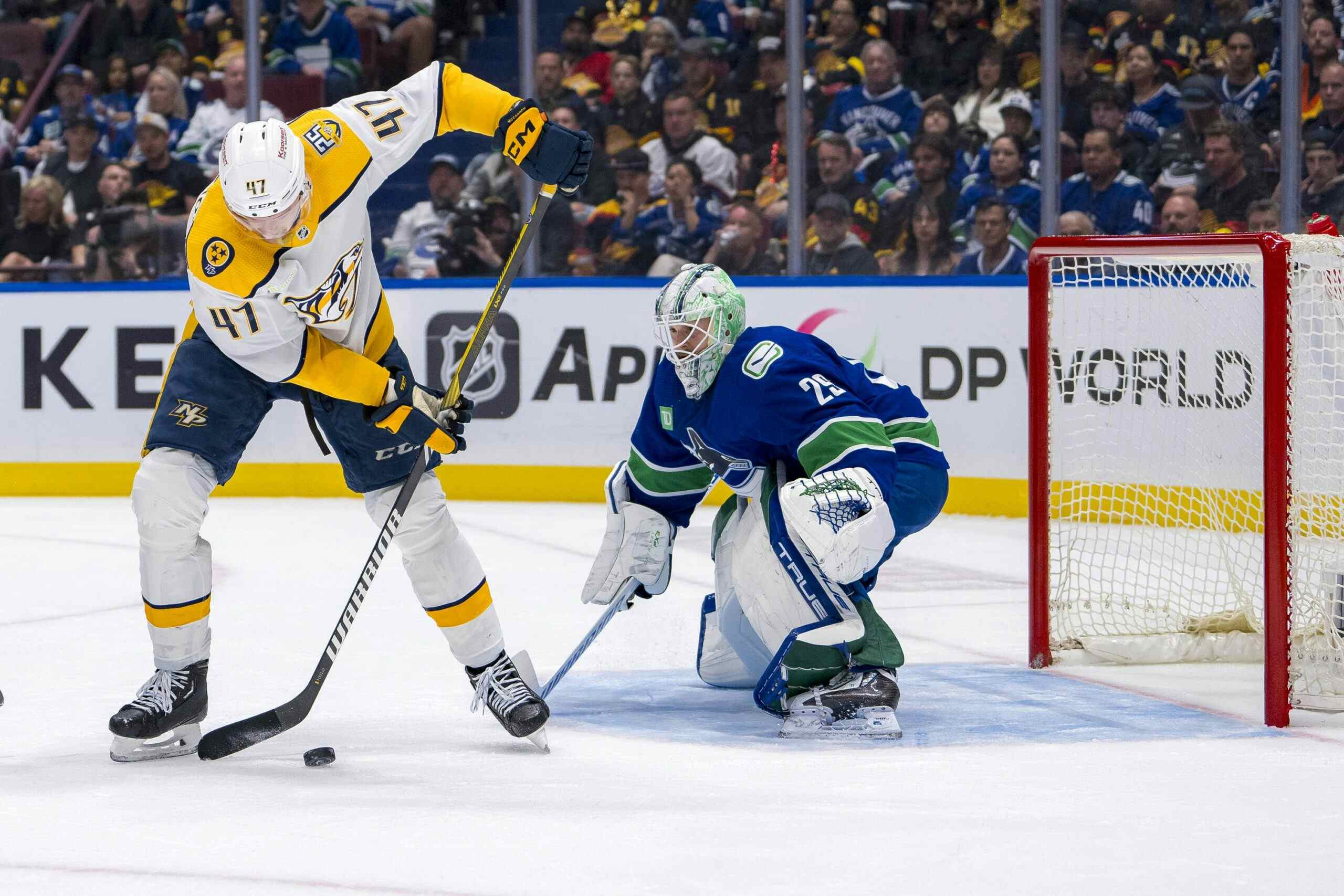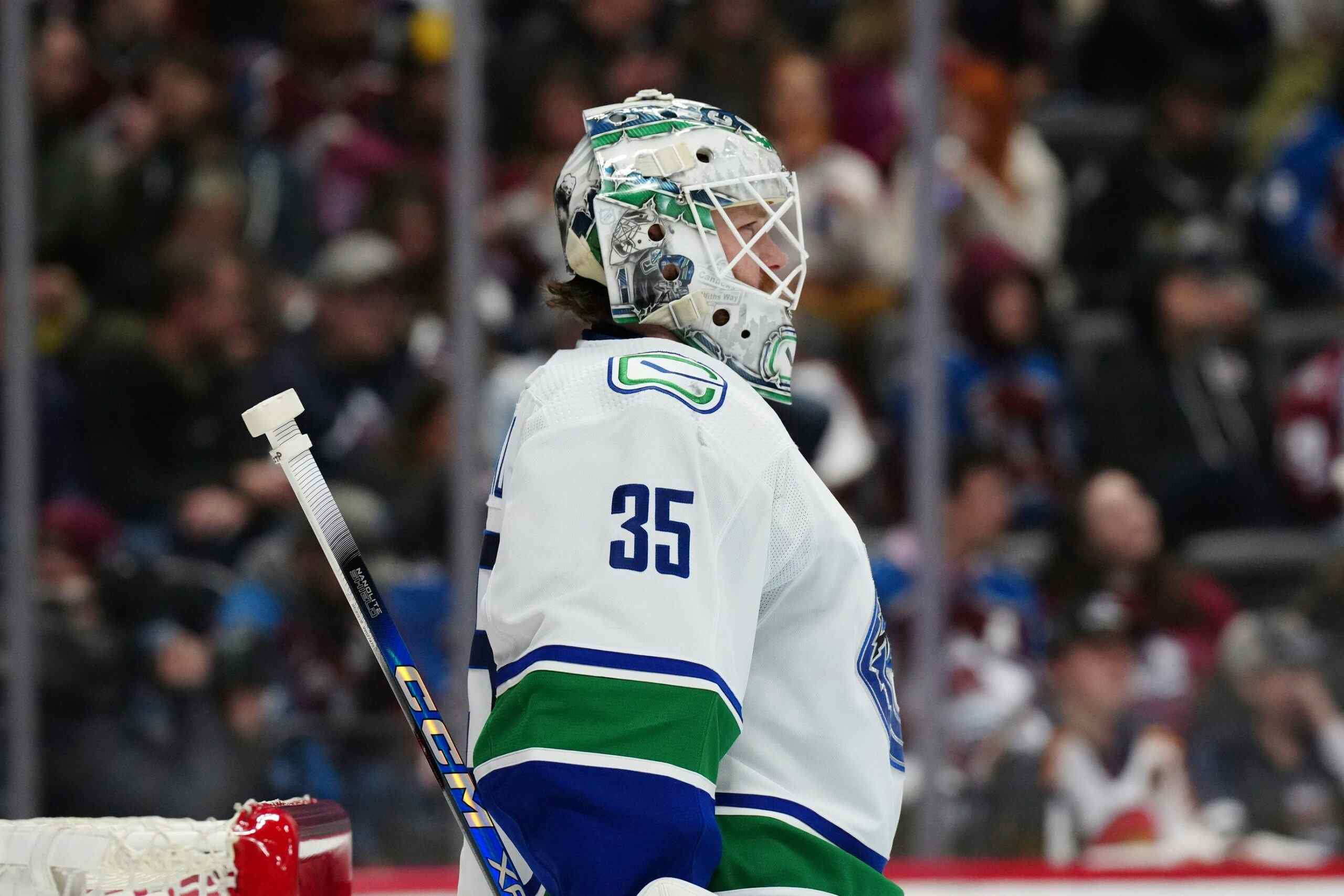Nation Network 2017 Prospect Profiles: #49 – Nick Henry

6 years ago
After winning MJHL rookie of the year at 16, big things were expected of Nick Henry upon making the jump to major junior. He more than lived up to those expectations, finishing second in WHL scoring behind Aleksi Heponiemi. Despite putting up impressive numbers this season, Henry has been overlooked by a number of scouts. He checks in at number 49 on our consensus ranking.
Bio:
- Age: 17 – July 4th, 1999
- Birthplace: Portage La Prairie, MB, CAN
- Frame: 6’0″/ 190 lbs
- Position: RW
- Handedness: Right
- Draft Year Team: Regina Pats (WHL)
Stats:
Career:

Cohort pGPS

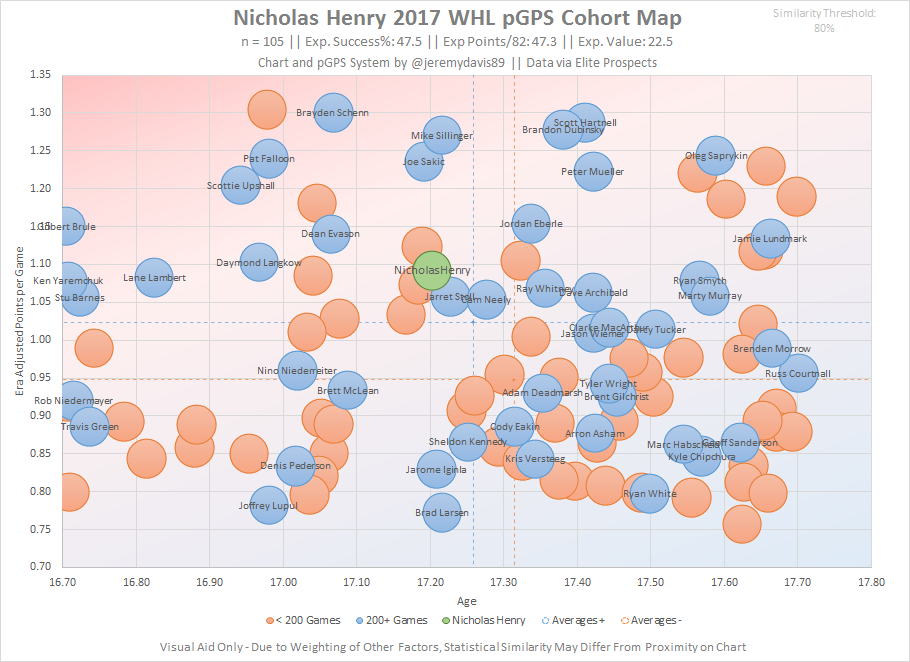
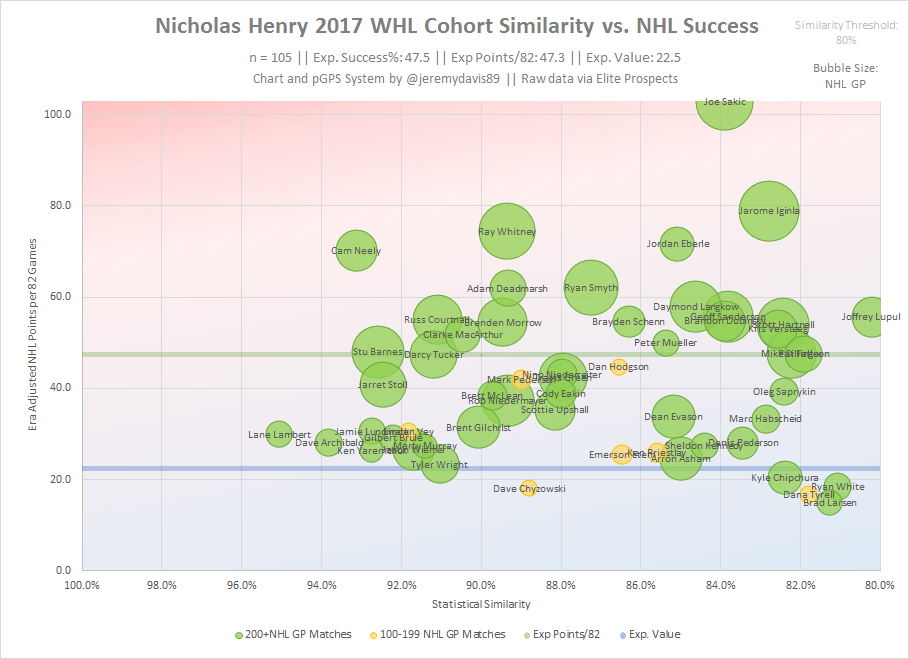
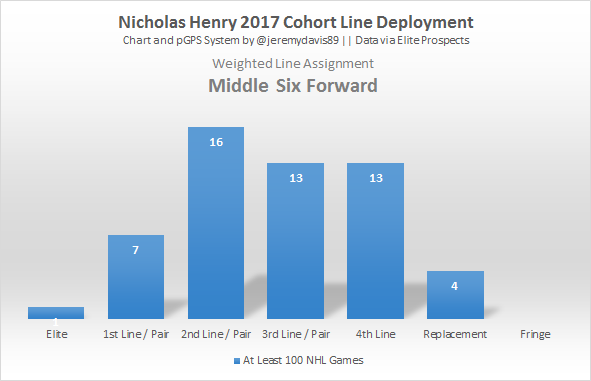
Scouts:
Curtis Joe, Elite Prospects:
A strong offensive winger that showcases excellent awareness and work ethic. Has an element of finesse and skill to his game and can fit in as a point producer. Skates well and accelerates quickly. Goes hard to the net. Can get quite creative with the puck, keeping the opposition on their toes as he is a hard player to read. Bears down in the defensive end and cuts space off open lane pockets. Transitions up ice well and has excellent positioning entering and exiting the zone. All-in-all, a very versatile hockey player that continues to improve with each game.
Bill Placzek, DraftSite.com:
A skilled first year forward formally of MJHL Championship Portage, where he helped them to their second straight league championship, and then came oh so close to playing in the RBC Cup – the national championship for junior A hockey. A sturdily built six footer clicked early with his veteran linemates, he is playmaker who likes to cycle the puck down low and has a good shot. Sees the ice well and is creative with the puck, and generates scoring chances. Hard working and disciplined. A longer term developmental guy who will work to improve his top foot speed and all around game.
Our Take:
In just about every draft there’s at least one player that scores at an elite clip while playing on a great line, and just about every year around this time someone voices concerns about that player riding his linemates’ coattails. When those concerns are invalid, you get Matthew Tkachuk. When they’re valid, you get Angelo Esposito. Somewhere between those two ends of the spectrum, you’ve got Nick Henry.
Henry is a valuable case study on the importance of context. Henry scored 81 points in 72 games but did so playing on a stacked team in Regina, skating primarily alongside arguably the WHL’s best player, Sam Steel, and overager Dawson Leedahl. While the fact that Henry is even able to think the game at a level comparable to Steel should be taken as a good sign, it’s also undeniable that his totals have been inflated.
That’s the type of thing that you have to spend some serious time considering when you’re going to use a high pick on a player. The thing is, Henry has been ranked outside the top three rounds by a number of publications, which seems like a major overreaction, even given the legitimate concerns about his ability to produce offense on his own.
Henry is a self-described playmaker, something scouts have been quick to point out as well. Henry likes to get in on the cycle, and is also a dangerous passer off the rush. The main thing I’ve noticed about Henry, though, is his shot. He has a lightning-quick release, a booming slap shot, and a powerful one-timer that you’d like to see him get off more often. Henry also isn’t afraid to go to the front of the net, where he was able to whack in a number of rebounds this season.
The biggest knock on Henry is his consistency, or lack thereof. There were a number of games this season where Henry looked like a man possessed, but he was also prone to disappearing for long stretches, especially in the WHL playoffs. Like most players his age, his defensive game could also use a bit of refinement, but not so much that it will present any real long-term concerns.
I’m not usually the type to appeal to authority, but when a 17-year-old rookie is able to play his way on to the top line of one of the WHL’s strongest and deepest teams, I’m inclined to think there’s a reason. It takes a certain amount of vision and creativity to be as effective as Henry was with Steel and Leedahl this season.
The prospect Graduation Probabilities System (pGPS) shines a very favourable light on Henry, who carries an expected success percentage of 47.5%, and his expected production is 47.3 points per season, indicating a player who’s value is roughly comparable to that of a mid-to-late first-round pick. Henry’s closest successful cohorts include Jordan Eberle, Cam Neely, Ray Whitney, and Jarret Stoll.
Much like his traditional stats, Henry’s success percentage and expected production are likely inflated by playing with good players, but given where scouts have ranked him he has the potential to be a tremendous value pick based on where he’s ranked by most scouting services.

